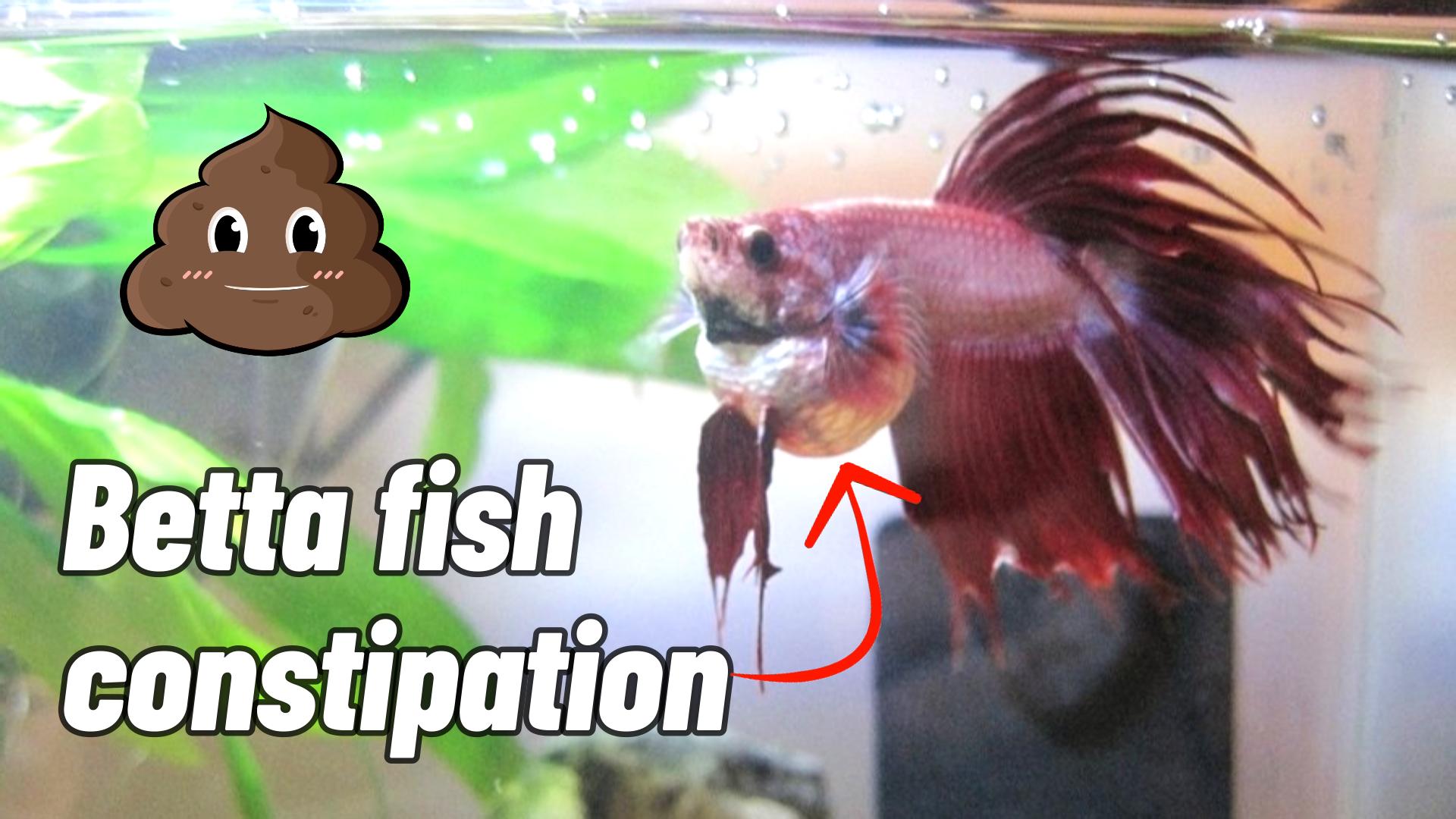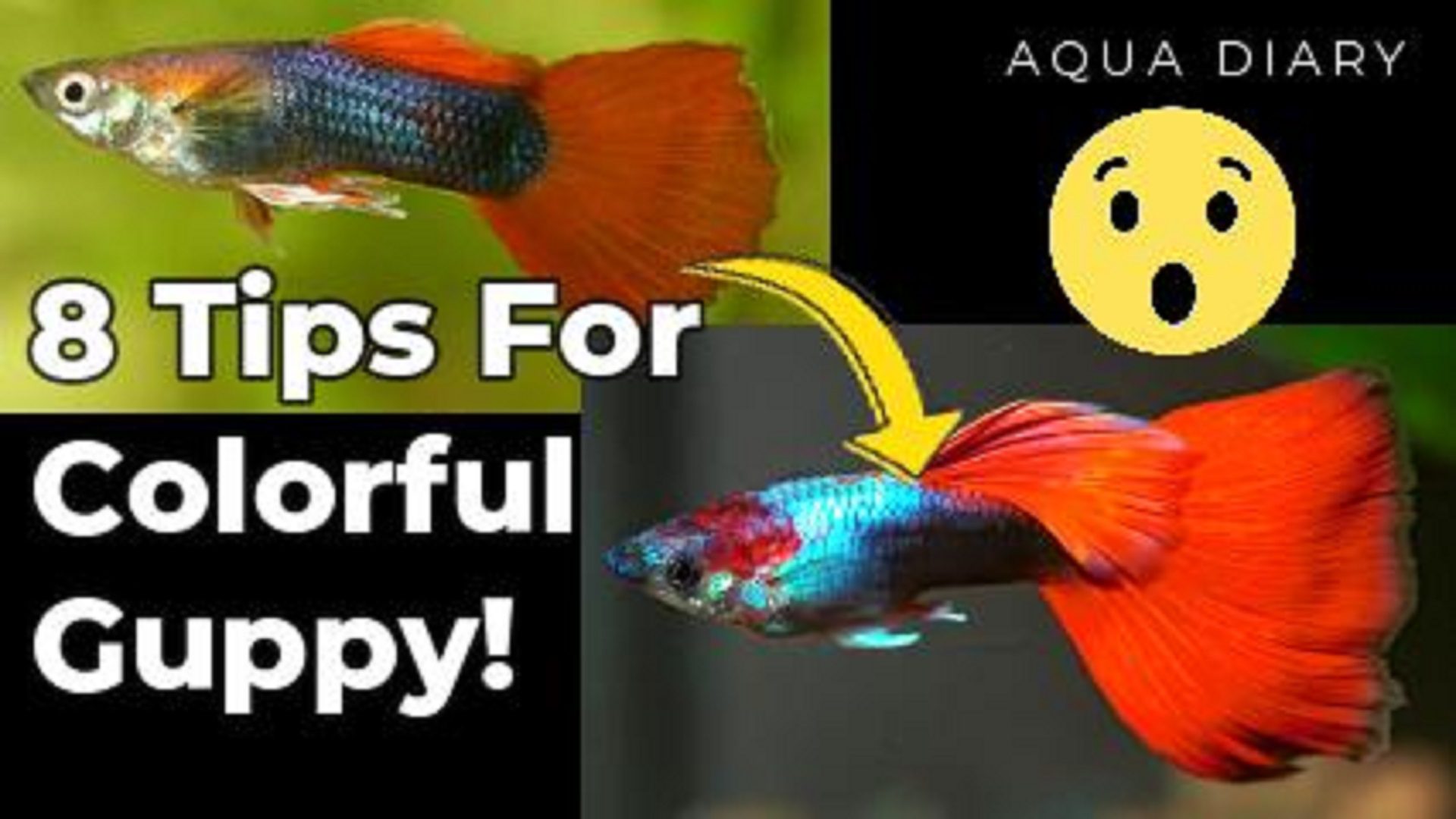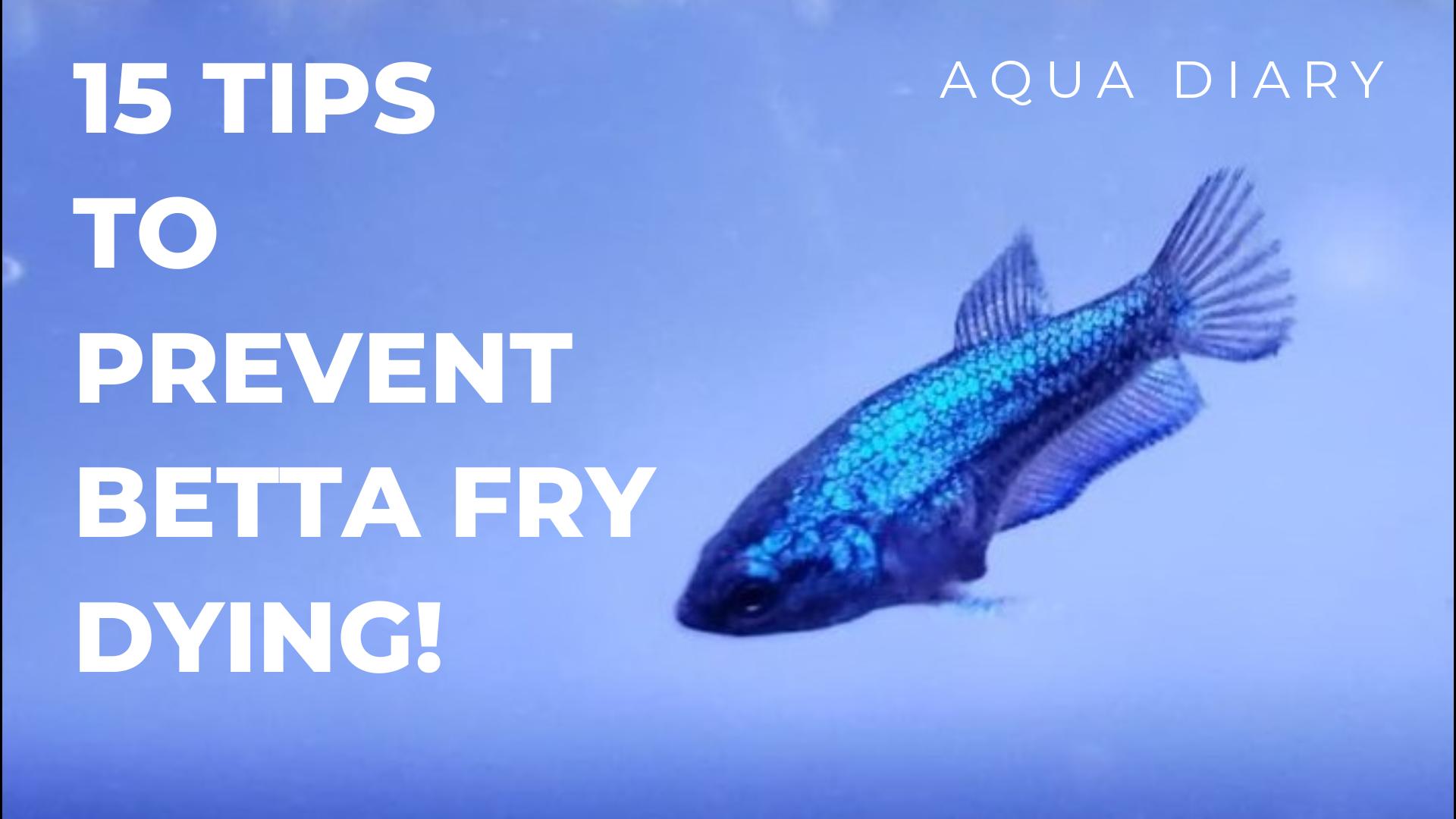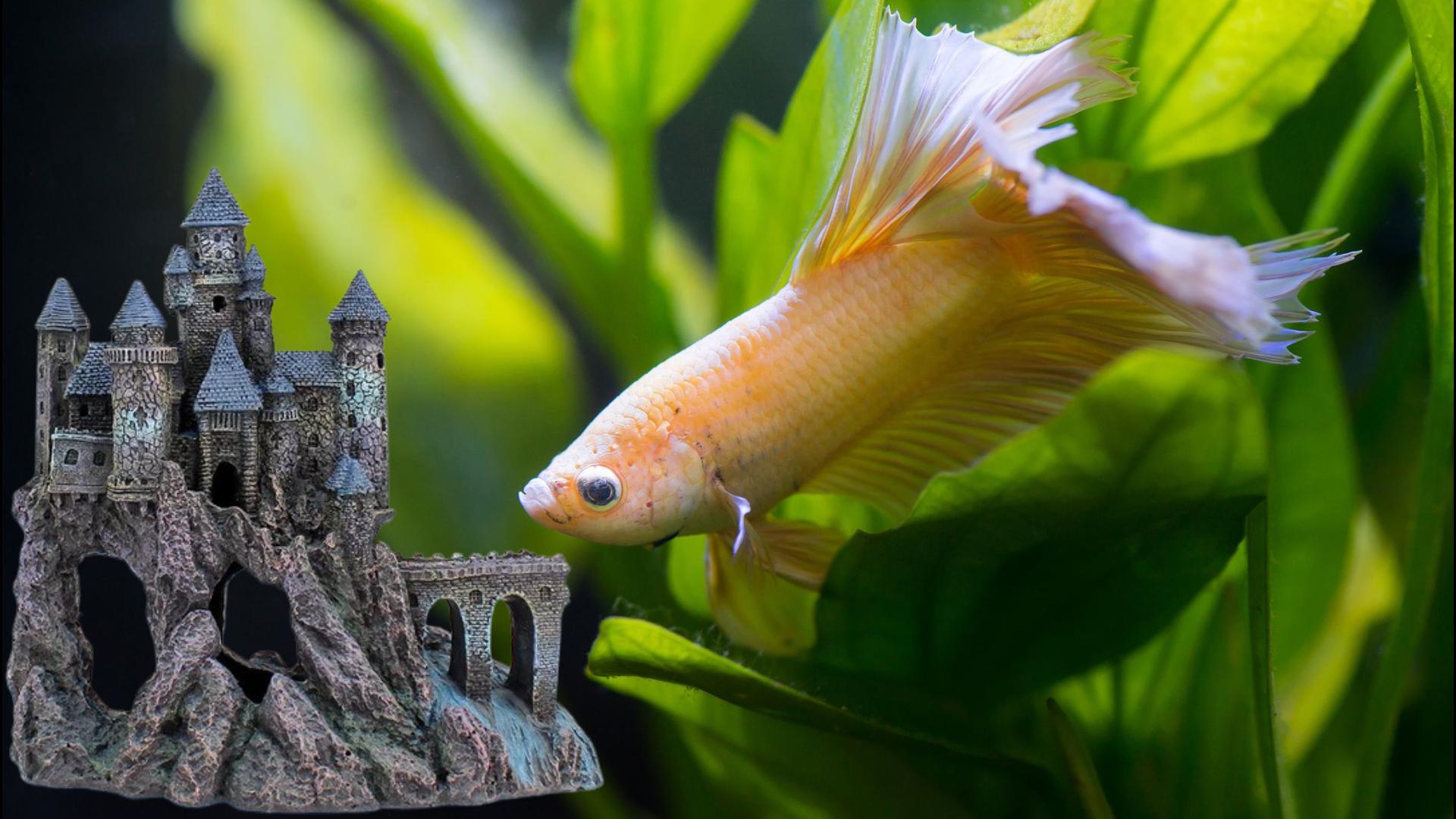One of the most common health problems that fish owners face is betta fish constipation. In this blog, we’ll cover how to identify constipation signs in your Betta fish and treatments that can help your Betta feel better in no time. Let’s get started.
Betta fish are popular pets because of their beautiful colors and graceful movements. However, owning a Betta fish also comes with responsibilities, such as providing them with the right environment and diet. In this blog, we will discuss the causes, symptoms, and treatments for Betta fish constipation to help you keep your pet healthy and happy.
What is betta Fish Constipation?
Betta fish constipation occurs when waste builds up in your Betta’s stomach, causing difficulty passing it. This can be caused by various factors, including overfeeding, lack of fiber, poor water quality, and more. Betta fish constipation symptoms include a bloated stomach, loss of appetite, and lethargy. When a Betta fish is constipated, its abdomen may appear swollen or bloated, and it may stop eating or become lethargic. This is because waste buildup in the digestive system can cause discomfort and pain. If left untreated, constipation can lead to other health problems, such as swim bladder issues or infections.
What Causes betta Fish Constipation?
Several factors can cause Betta fish constipation. One of the most common is overfeeding. Betta fish have small stomachs and should only be fed small amounts of food at a time. If you feed your Betta too much or too often, their digestive system may not process all the food, leading to constipation. Another factor that causes constipation is a lack of fiber in your Betta’s diet. Betta fish require fiber to move waste through their digestive system, just like humans do. If your Betta’s diet lacks fiber, constipation may occur.
Poor water quality can also contribute to constipation. If your Betta’s tank is not cleaned regularly, waste can accumulate in the water, leading to an unhealthy environment for your Betta. This can cause stress and other health problems, including constipation.
Can constipation kill a betta fish?
Constipation can kill betta fish if left untreated. Constipation causes discomfort, bloating, and other health problems, including swim bladder disorder, which can be life-threatening. If a betta fish is constipated, it’s important to act as soon as possible.
How to Know if Your Betta Fish is Constipated?
If your Betta fish’s belly appears larger than usual, this may be a sign of constipation. You may also notice that your Betta fish has difficulty swimming or staying afloat. This could be due to the added weight of waste in their stomachs. Another sign to look out for is whether your Betta fish is not interested in food or seems less active than usual, this could be a sign that they are experiencing discomfort or pain due to constipation. You may also notice that your Betta fish’s feces are abnormal, such as being smaller or more discolored than usual. Your Betta fish needs to be treated as soon as possible if you notice these signs.
How to Treat Betta Fish Constipation?
There are several simple treatments you can use to help your Betta fish pass waste more easily. This can relieve their discomfort and promote healthy bowel movements.

Fasting:
The first step in treating constipation in Betta fish is to stop feeding them for a day or two. This allows them to rest and stimulate bowel movements. It’s critical to note that Betta fish can go for several days without eating, so fasting for a short period should not harm them. This can be an effective treatment if your Betta fish is having difficulty pooping due to overfeeding. Skipping a couple of meals can give the digestive tract a chance to “catch up” and not stress your fish.
Flaring:
Betta fish often flare up when they feel threatened or want to establish dominance. However, another potential benefit of Betta fish flaring is that it can stimulate their digestive system, improving their ability to pass waste. When Betta fish flare, they expand their body cavity, increasing the pressure on their internal organs and potentially helping move things along in their digestive tract. To make your Betta fish flare, you can place a mirror or another Betta next to it. But it’s critical to limit the amount of time the Betta spends flaring and monitor its behavior closely to ensure it doesn’t become overly stressed or aggressive.
High-fiber diet:
Introduce your Betta fish to a high-fiber diet to promote healthy bowel movements. Foods such as daphnia, brine shrimp, and peas are all good sources of fiber that relieve constipation. These foods should be boiled or blanched before feeding to your Betta fish to make them easier to digest.
Peas have been used for years to treat fish constipation and are effective. This is something you should try only after fasting your betta fish for a few days and flaring excesses won’t make any difference. To prepare peas for your betta, boil them in water. Once boiled, rinse it in cold water for a few moments to cool it down. Then, gently remove the skin from the peas, cut it in half, and offer one half to your betta. After feeding your betta fish peas, it’s essential to let it sit fast for 24 hours to give it a chance to do its work. If your fish improves after 24 hours, that’s great news! But if your pet still seems unwell, feed the other half of the pea and fast your fish again for another 24 hours.
Epsom salt:
Another effective treatment for constipation in Betta fish is Epsom salt addition to their water. Epsom salt contains magnesium, which stimulates bowel movements and relieves constipation. Prep your betta for its salt treat and put it in the prepared quarantine tank for five to eight minutes. After time has elapsed, place it in the recovery tank for another five minutes and then return him to his original aquarium tank. The bath will relax your fish’s muscles and ease constipation. Fish absorb salt water and help eliminate excess body waste. Further, Epsom salt reduces bloating and swelling and makes fish more comfortable.
Water changes:
In addition to the above treatments, it’s important to keep your Betta fish tank water clean and healthy. Regular water changes can help remove any excess waste and bacteria that may contribute to constipation. A 25-50% water change every week is recommended.
What other tank mates can help clean Betta Fish Poop?
If you’re looking for tank mates to keep your betta fish tank healthy, there are several options available. Certain snail species, such as Nerite Snails, Mystery Snails, and Ramshorn Snails, can clean up betta fish poop and other debris in the aquarium. They are low maintenance and help keep the tank clean. Shrimps, such as Cherry Shrimp and Amano Shrimp, are also effective at cleaning up betta fish poop and other waste in the aquarium. In addition to snails and shrimps, Corydoras Catfish and Otocinclus Catfish, as well as plecos are also better options to remove betta fish poop. Also, they eat leftover food and algae, making them a great addition to a tank.
How to Prevent Betta Fish Constipation?
Preventing Betta fish constipation is easier than treating it. One of the most important things you can do is ensure your Betta’s diet is high in fiber. Foods such as frozen or live daphnia, brine shrimp, and bloodworms are all great sources of fiber. You should also avoid overfeeding your Betta.
As you may already know, bloodworms are an excellent source of nutrition for betta fish and can be used as a treat for them. However, it’s critical not to feed your betta fish bloodworms daily as it can cause digestive issues and constipation. Betta fish should be fed blood worms less frequently as treats.
The best way to prevent constipation-like symptoms in your Betta fish is to ensure you are feeding an appropriate carnivore diet and not feeding too much or too little. Ensure your water parameters are correct and stable to rule out water quality problems causing the symptoms you’re seeing.
In addition to preventing constipation, there are several other things you can do to keep your Betta fish healthy. One important aspect is to ensure a clean and well-maintained tank. You should also make sure that your Betta’s tank is appropriately sized and that the water temperature is kept between 76 and 82 degrees Fahrenheit.
Constipation can be painful and uncomfortable for Betta fish, but with proper treatment and preventative measures, it can be avoided. By feeding your Betta a high-fiber diet, avoiding overfeeding, and keeping its tank clean and well-maintained, you can ensure its health and happiness.
Betta constipation: Signs and Treatment.
If you found this blog helpful, please share it with your friends. Don’t forget to leave a comment below if you have questions or suggestions for future topics. Thanks for checking!





